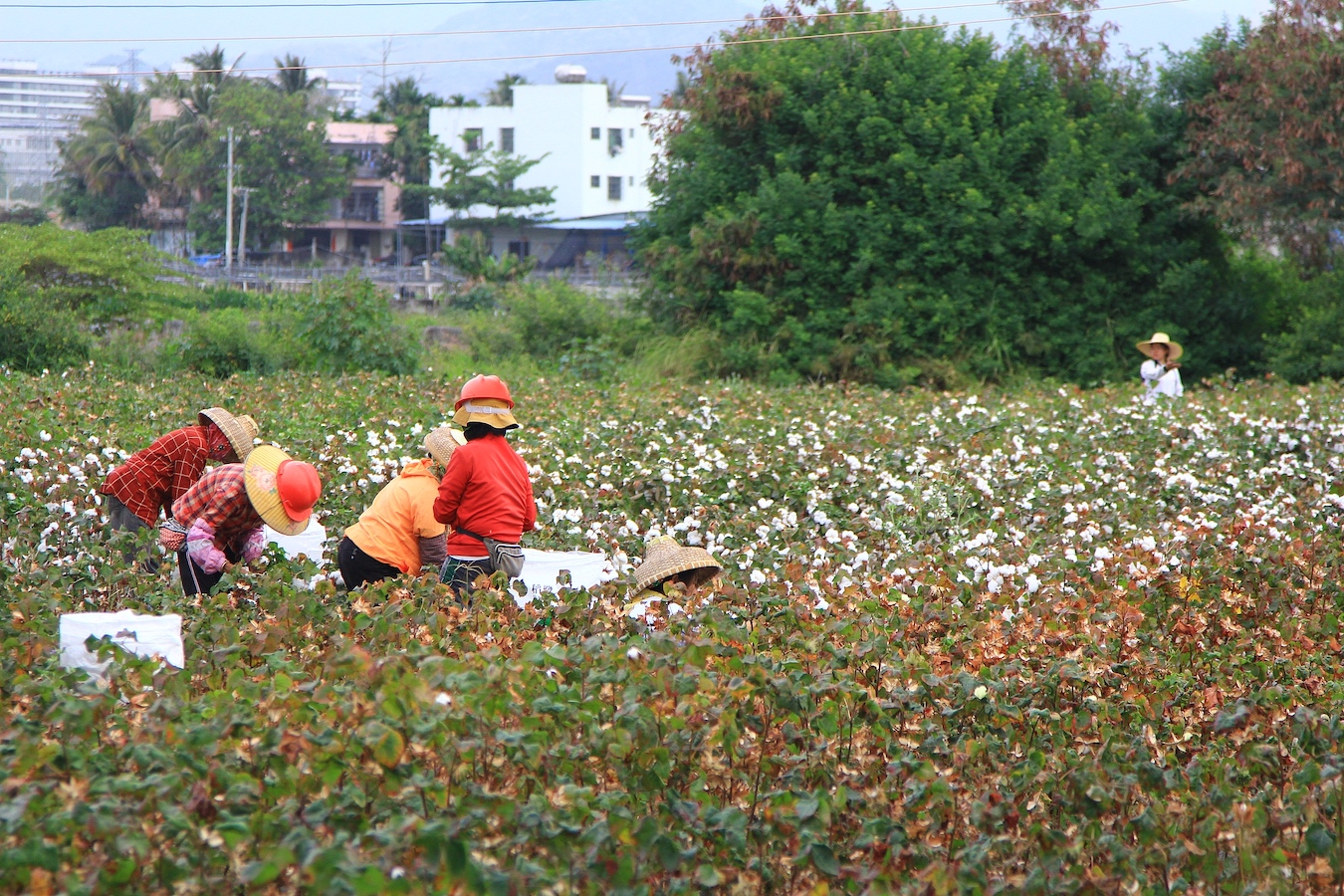
Farmers harvest cotton seeds at the Nanfan Breeding Base in Sanya City, Hainan Province, south China, March 12, 2025. /VCG
One notable breakthrough is in the field of hybrid rice development. Traditionally, breeders tested thousands of combinations to find a single superior hybrid. Now, AI-powered genomic analysis predicts high-yield combinations before field trials begin.
"We have moved from experience-driven to data-driven breeding," said Li Huihui, deputy director of the National Nanfan Research Institute of the Chinese Academy of Agricultural Sciences.
Another milestone is the launch of "Fengdeng," a seed-focused large language model mainly developed by the Yazhou Bay National Laboratory in Sanya. This AI platform provides expert insights on breeding, cultivation and industry trends – empowering farmers and researchers with actionable knowledge.
Despite such advancements, challenges remain. China's smart breeding sector still trails global seed giants in terms of data-sharing infrastructure and commercialization. Fragmented datasets limit AI's ability to predict and design superior crop varieties.
"Accelerating the development of high-yield, high-quality and climate-resilient 'super varieties' is crucial," Qian said. He called for interdisciplinary collaboration among breeding institutions, AI researchers and agribusinesses, to drive innovations in smart breeding.